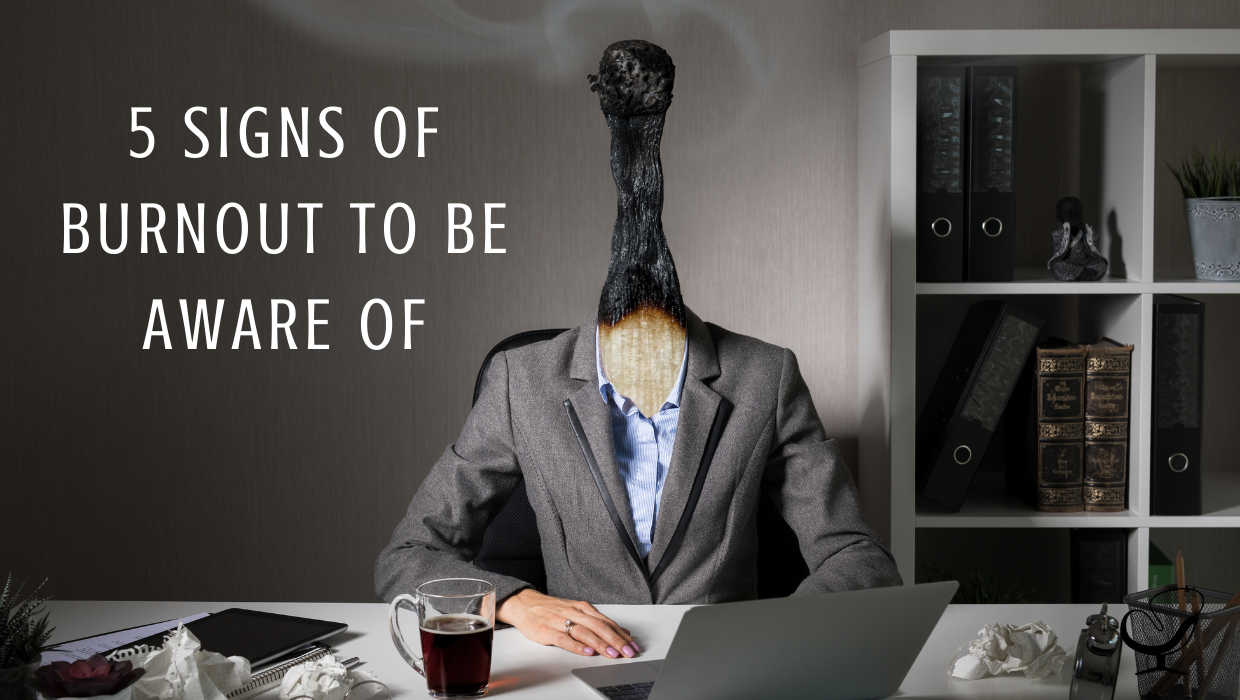As an experienced therapist and clinical supervisor, I have seen many therapists in our field exhibit signs of burnout over the years. Often therapists are unaware that what they’re experiencing is burnout, and inevitably these therapists run into trouble. Sometimes they may need to take a break or even leave the field. Other times, unfortunately, burnout affects the clinical work we as therapists do, and you may start making bad or unethical clinical decisions. It’s so imperative to be able to identify the different signs of burnout within yourself so that you can have sustainability in the field while continuing to do what brought you to become a therapist in the first place: help others.
While signs of burnout will vary from therapist to therapist, there are some top common signs of burnout that are more easily recognizable.
Here Are My Top 5 Signs of Burnout to be Aware Of:
1. Your Self-Care Plummets
You used to exercise every day as part of your self-care routine, but now you’re unmotivated to even take a quick walk with the dog. Or perhaps you find yourself scrolling social media incessantly, and then realize it’s been a few hours and you haven’t even started that load of laundry yet. You’ve been so busy, seeing clients back-to-back, that you haven’t done your daily meditation or yoga poses. If this seems like you, this could be a sure sign of early burnout.
2. You Think About Work Constantly and are Unable to Wind Down After Work
Your system is so revved up, and you have so many details to remember and things to follow-up on, it seems like you never stop thinking about work. Even when you’re with your family, significant other or close friends you cannot turn work off. Without giving yourself a mental and emotional break from work, you may drive yourself and your motivation into the ground.
3. The Emotional Toll From Work is Affecting Your Personal Life
In our field, we use ourselves as the instruments through which to provide counseling services. When our minds are not operating at our ideal strength, the emotional toll from the vicarious trauma we pick up from our clients is going to affect you personally. Perhaps you’re not able to listen to a friend in distress because you see so much of it during your workday, and your friend starts to pull away and not call you anymore to get together. Or you have no patience for crying children and you snap back in anger instead of using your usual patience. When your personal life becomes affected, you are likely experiencing burnout.
4. You’re Exhausted All The Time or Have No Energy to do Things
You’re young(ish!) and used to having lots of energy. But more and more lately, you’re just feeling exhausted all of the time. You can’t wait to get to bed while barely making it through the day, yet your sleep is restless and far from refreshing. You stop doing activities that you used to enjoy and are isolating yourself more and more, with no outlet to process your challenging days and work. If there are no other medical reasons for your exhaustion and you know work is stressing you out, it may be burnout.
5. Start to view your job as frustrating all the time with no joy
Eventually, you start dreading going to work. Sure, you still theoretically enjoy your job, but you aren’t finding the joy in the fun things at work and are most definitely not liking the challenging parts of your job. The more frustrated you get, the more you start to blame others: your supervision, your manager, the agency, and even your clients, for your irritable mood. When you start losing the joy in your job, it can feel like you’re trapped with no way out. This is another sure sign of burnout.
What do you think? Do any, or all, of these signs of burnout describe you? I can look back on my own career (25 years in) and clearly identify the times I was burnt out in my work and didn’t realize it. Looking back, it’s so obvious, but it’s not always so clear when you’re in the midst of your day-to-day operations. I am hopeful that this article will help some of you identify the signs of burnout as awareness is always the first step (as we as therapists know).
Stay tuned for next month’s blog: What To Do About Therapist Burnout.
Previous Articles by Shannon Heers
The Benefits of Listening to a Podcast for Therapists
How to Hire Your First Therapist When You’ve Never Hired Before
Don’t Settle When Hiring Clinicians
Shannon Heers
 Shannon Heers is a licensed professional counselor in Colorado. She owns the private-pay group practice Catalyss Counseling in the Denver metro area, focusing on helping adults manage their anxiety, grief, and trauma. Shannon is also an experienced clinical supervisor and manager who offers business consultation services to other therapists. She balances working with raising her two young children.
Shannon Heers is a licensed professional counselor in Colorado. She owns the private-pay group practice Catalyss Counseling in the Denver metro area, focusing on helping adults manage their anxiety, grief, and trauma. Shannon is also an experienced clinical supervisor and manager who offers business consultation services to other therapists. She balances working with raising her two young children.
Group practice ownership is daunting but can be done easily if you do your homework, prepare, and learn all you can about the process!

